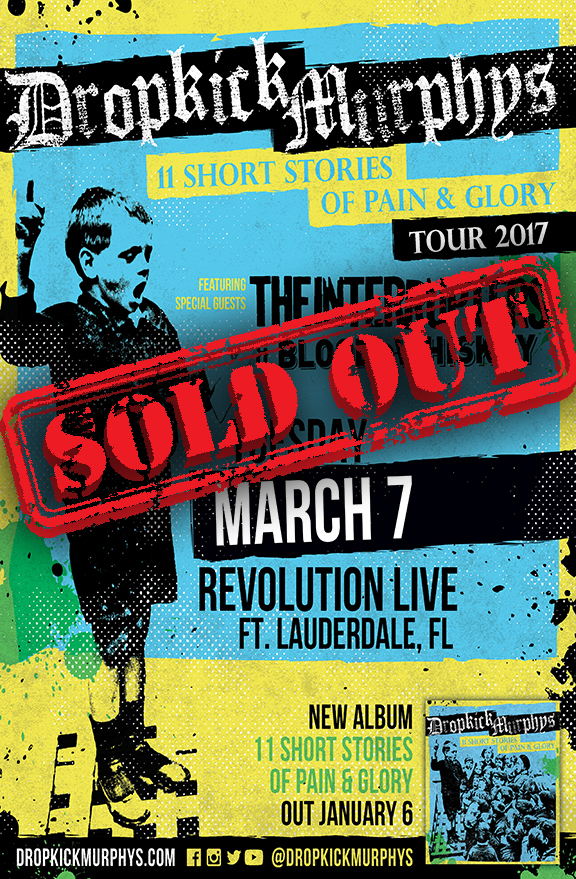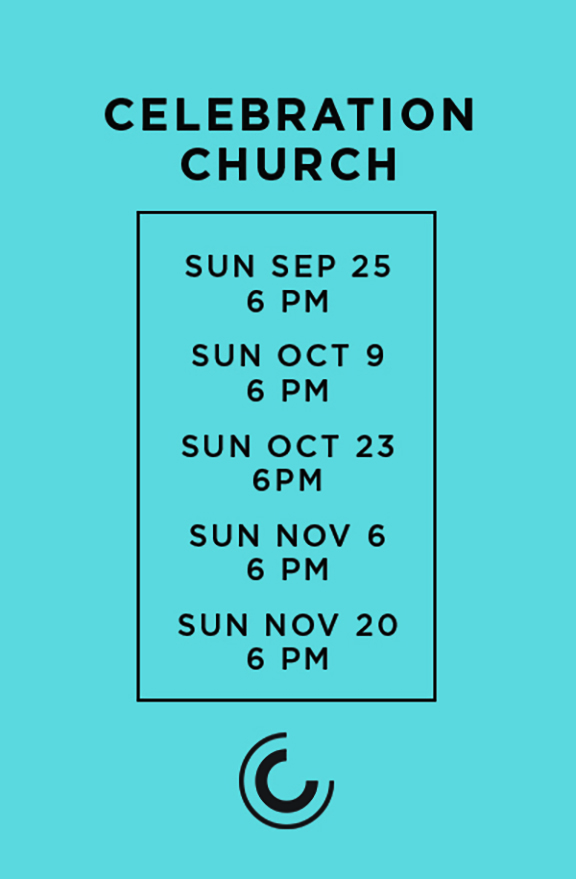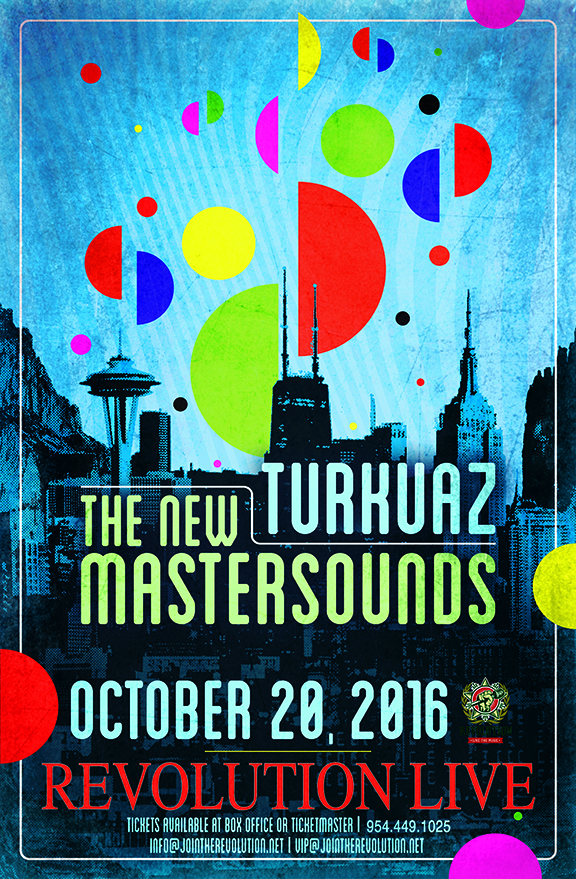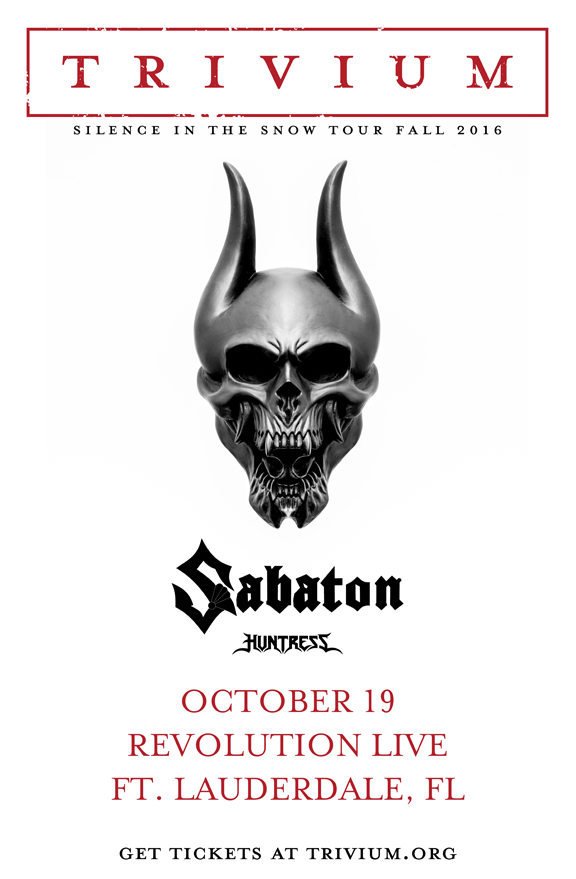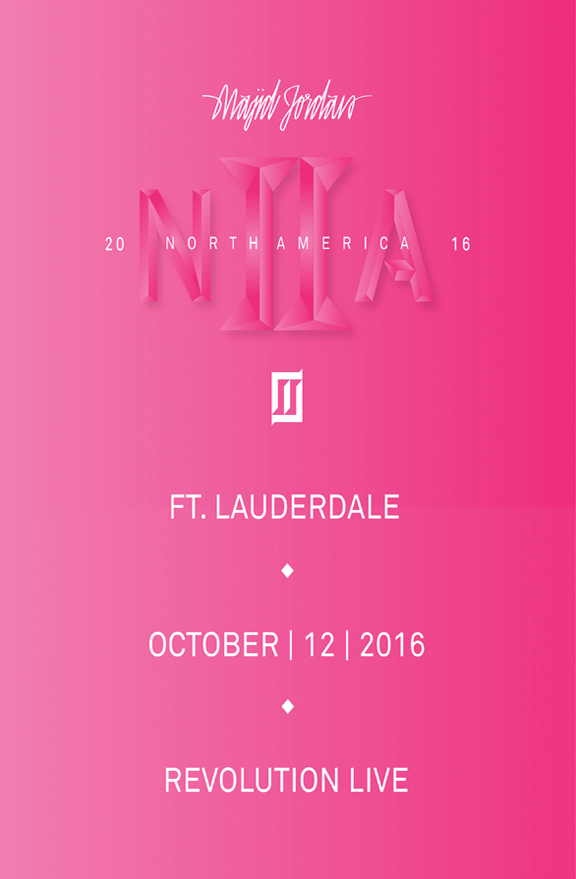Over Atmosphere’s more than twenty-year career they have managed to continually tweak and strive to perfect their formula, while neither straying too far off their path, nor resorting to playing it safe. Starting at Overcast, the group’s first official album, and traveling through years of new albums, side projects and various collaborations, Atmosphere’s music has evolved in a way that differs from many of their peers and predecessors. As Atmosphere steps into their next year of making music, Slug & Ant show no signs of slowing, compromising or losing sight of their vision. Nor has time revealed any diminishing of those qualities that have brought them this far. Musically, Ant has continued to define Atmosphere’s sound, ranging from a healthy mixture of upbeat and fun, to the oft more iconic, moody and personal. As for the lyrics, Slug started his passion for rhyming with an obsessive-like penchant for the way words intersect, as well as how those words can be manipulated for unexpected and clever meanings. Their passion and creative spark are as illuminate as ever. Slug and Ant still have plenty of stories to tell.
Jam Cruise Post-Party Karl Denson’s Tiny Universe & The Motet Presented by JamBase
It’s a Post Jam Cruise Jammin’ Concert
Karl Denson’s Tiny Universe are back in action. The show will give fans the chance to experience what is highly regarded as one of the best live bands on the planet. Karl, who now serves as the saxophonist in The Rolling Stones, is fresh off a tour with the legendary rock band that included the highest grossing concert festival of all time, Desert Trip. With KDTU, he’ll be showcasing material from his forthcoming studio album, due in early 2017, as well as previous acclaimed KDTU recordings like New Ammo and Brother’s Keeper. Audiences can also expect a handful of KDTU’s super-charged covers by the likes of Prince, The White Stripes and Beastie Boys.
You can’t fake the funk, and The Motet bring it on hard with a signature style that slaps you in the face with sounds that are fresh and unique. The Motet is an American funk, afrobeat and jazz influenced group based in Denver, Colorado. An exuberant, lithe outfit, the Motet is known for their high-energy live shows and cross-pollinated musical sound. It’s a sound they’ve captured on such albums as Breathe, Play, Music for Life, and Instrumental Dissent. The album Dig Deep found them incorporating electronics into the mix. The band’s seventh studio album, the eponymously titled The Motet, featured a more collaborative approach than previous albums. Their newest album, Totem, was released July 8th, 2016.
Dropkick Murphys 11 Short Stories of Pain & Glory Tour 2017
Dropkick Murphys are an American Celtic punk band known for their loud, energetic live shows. The band was initially signed to independent punk record label Hellcat Records, releasing five albums and making a name for themselves locally through constant touring and yearly St. Patrick’s Day week shows held in and around Boston. The single “Tessie” became the band’s first mainstream hit and one of their biggest charting singles. The band’s final Hellcat release, The Warrior’s Code, included the song “I’m Shipping Up to Boston”; the song was featured in the Academy Award-winning movie The Departed, and went on to become the band’s Platinum-selling single and remains one of their best-known songs. The band then began releasing music through their own imprint label. The Meanest of Times made its debut at No. 20 on the Billboard charts and featured the successful single, “The State of Massachusetts”, while Going Out in Style was an even bigger success, making its debut at No. 6, giving the band their highest-charting album. The band’s eighth studio album, Signed and Sealed in Blood made its debut at No. 9 on the Billboard charts. The band is currently recording their ninth studio album which they expect to have released by the end of the year or early 2017.
Foals with Bear Hands, Kiev
On an unseasonably warm night in March, 2013, within the august, hallowed walls of the Royal Albert Hall in London, something extraordinary happened. Five musicians took to the stage, launched into a song called Inhaler, and blew the roof off. For the 5,000-plus people who were lucky enough to be present that evening, the experience was more like a mass epiphany at a revivalist meeting than a gig. Foals whipped up a frenzy and sent it hurtling towards the audience, who gave it a shake and sent it hurtling right back. Two hours later, we staggered, reeling, out into the night. This was more than music. This was alchemy.
But then, inevitably, came the fear. Could the band ever match this? My advice for the fretters is simple: put on track one – the title track and lead single – of Foals’s visceral new album, What Went Down. Put it on anywhere – on your headphones, in the car, in the great wide open, and put it on LOUD. “I buried my heart in the hole in the ground,” sings Yannis Philippakis, like a fire-and-brimstone preacher in a Deep South prayer house, over eerie, pitch-shifting organ. “With the lights and the roses and the cowards downtown. They threw me a party, there was no one around. They tried to call my girl but she could not be found.” That’s when the beat kicks in, a giant Motorik beast of a thing that hurls the song forwards. A lowering, syncopating theme enters the picture, threatening to drag the song down into the depths. And, oh God, here’s the chorus. It doesn’t just arrive, it explodes. “When I see a man I see a lion,” Yannis screams. “When I see a man I see a LIAR.” Radiant, roiling, roistering, rabble-rousing: this is music that is at once beautiful and hellish, euphoric and demonic. What, and you were worried Foals couldn’t match what they’d created before? Match it? They’ve fucking left it for dust.
It cannot be the case that one type of music can be more resonant, more significant, than another. Music, from whatever genre, either connects or it doesn’t; not because it’s chart-pop, or alt-country, or deep house, or art-rock, but because it speaks to us, baffles us, ensnares us. Sometimes, though, a band will ride roughshod over that logic, will create something that takes music beyond the usual narrow considerations of chart placings and boy-meets-girl platitudes, and renders all around it irrelevant, trivial, disposable. All of the truly transformative and era-defining albums have grappled with questions that are a world away from the bland bleatings of homogenised pop. Permanence and impermanence, life and death, solitude, vulnerability, intimacy, passion, rage, humanity – weighty issues that make demands of the people creating that music, and of all those who listen to it, too.
What Went Down confronts these issues head-on. Recorded with James Ford (Arctic Monkeys, Florence + The Machine) in the same Provence village where, 127 years ago, the artist Van Gogh was hospitalised in a psychiatric ward after slicing off his ear, the album sees the band take their songwriting to a new level. Yet it was, says frontman Yannis Philippakis, the easiest to make. “We spent two months in the studio, and that’s quick for us. There’s a propensity in the band to over-think, and sometimes undo what had been great in the first place, out of boredom or restlessness – or a desire to make something better. But it rarely is. But I think we’d all have got bored of being in the band had we not had that restlessness. I mean, I can’t begin to imagine, or predict, what the next record will sound like, but thank god for that. There are so many bands where you just know what their next move will be, because it’ll be the same as their last one.”
No sooner had Foals rounded off their world tour for the Holy Fire album with an incendiary headlining set at last September’s Bestival, than they were back in the studio – and it’s that sense of urgency, Yannis says, that gives What Went Down its power. “By the time we got to Bestival, we were playing the best we ever have. I had this image of the band as this 10-legged beast, this ruthless, elegant machine, with everyone pulsing at exactly the same frequency. The five of us were at this level where the shows were still reckless and on fire, but it felt like we’d become this predatory animal, designed to annihilate the spaces we were in. The point is, if we’d had two months to deflate, to re-enter normal life, before going back into the studio, the new record would never have sounded like it does.”
Too often in the past, Yannis has been crudely characterised as a tormented, chain-smoking obsessive, as someone not liberated by music but driven half-mad by it – to the point where it’s tempting to feel that those doing such pigeonholing would rather musicians and songwriters were opinion-free automatons, trumpeting the light-entertainment party line. Do we seriously want that? Or do we want artists for whom creativity is like mortal combat, who bear the scars of those battles but don’t hesitate to re-enter the fray? Yannis is the first to admit that he’s a poor advertisement for the serenity that music is supposed to induce. But for him, that’s not the point. He’s not using music, using songwriting, to cauterise the wounds (wounds that most of us, if we’re honest, carry round with us, too). He’s using it to explore them, to attempt to understand them.
Writing the title track came about during a period , Yannis says, where he was “thinking a lot about masculinity, but also about being an animal, being violent and primal. When I sing that song I feel like I’m this fevered, skulking, brawling person. But again, there’s a vulnerability in there, too, and I think that’s got something to do with moving to London. I’d been in Oxford for so long, and I had to recontextualise myself, I’d marked the lampposts in Oxford, I knew my co-ordinates. In London, I thought, ‘I’m one of 10m people you know?’ It’s about trying to escape yourself, too; trying to tear everything away.”
The decision to work with James Ford was an easy one, Yannis says. “The chemistry was just immediately right. He doesn’t praise you, he’s very British in that respect. I remember, for the first few days in France, I’d be going, ‘Why’s he not being more encouraging?’ It took me a while to realise that that was a good thing. There were two clear aims this time: a really lean sound, nothing extraneous, nothing too fluffy, trying to get away from some of the more epic tendencies the band have. At the same time, we wanted to explore the more experimental side of the band, and push the extremes out further, in every direction – to dial everything up, to make the heavy stuff even more menacing.”
Albatross, a pivotal track on the new album, is certainly that. The lyrics are like daggers, self-lacerating shards of mockery and disgust – you can almost hear Yannis’s lip curl as he rages against himself on lines such as “You’ve got a hundred broken wishbones under your bed / You’ve got a hungry green-eyed monster that you keep fed”, as the clattering house beat and glacial piano send the song galloping towards oblivion. It’s shivers-up-the-spine stuff, music that delves into the darkest reaches of your soul and leaves you feeling winded. It’s also brave, fearless and shockingly candid. The antithesis of talent-show warbling. Music as passion, fire and confrontation.
By contrast, the album’s astonishingly beautiful closing track, A Knife in the Ocean, is like the calm before the storm, but also the stillness and silence after it has passed. A song that addresses the ephemeral, fleeting nature of human existence, and our endearing but deluded attempts to defy that irrevocable reality, it opens with Tibetan bells, and a plainsong-like melody that conjures up a supplicant at prayer. “When I come to walk the line,” Yannis sings, “the fire it comes, but I’ll be just fine.” Yannis likens the narrator to “a young man, saying ‘I’m going out, what I’m going to face will be dangerous, and I may not return.’ On one level it’s about a sort of personal apocalypse, a personal oblivion, confronting the conveyor-belt nature of life, and becoming more aware of human frailty, and how that interacts with being a fairly confident, bullish individual. But it’s also about looking round at a city like London and thinking, ‘How could this ever cease to exist? Something this imposing? This evidence of human endeavour?’”
Again, the question needs to be asked: do we want music that shies away from the complexity of life, from the baggage we all, every one of us, carry, from the fear we all feel, from the rapture and thunderstruck love that somehow coexist with that fear? Or do we, rather, want music that confronts that? Four albums in, Foals continue to walk into the storm. They can’t not, say Yannis. “I decided that whatever I wanted to say, I was really going to say it in the lyrics this time; and that, sonically, we’d have the same approach. There are far fewer veils on this record. It’s unfettered communication, it’s the clearest distillation of me, of all of us. Before, there’s always been that gap between the imagination, the romance and fantasy about what we wanted to create, and the actual reality, and that disparity has been difficult. But on this record, we’re the closest we’ve ever been to the vision in our heads. I feel much more at ease in myself, definitely; that things have aligned for me, creatively, where I feel far more confident, and much closer to the goal than I was before. One thing that we really take pride in, really take great enjoyment from, is that, through a series of beautiful accidents, we’ve got to the position where there’s no tethering to any preconceived idea of what we should do. So it feels like we can do anything.”
My notes on What Went Down, taken when I first heard the album, look like automatic writing, a scribbled blur that makes me feel breathless if I read it back. On every page, the same words are repeated, always in capitals: SONG! LIVE!!! I am impatient to the point of petulance to see the band play new songs such as Night Swimmers (“Calypso!” “Tom Tom Club” “SONG!”), London Thunder (“Hymn-like, elemental” “WHAT a melody!” “Amazing liftoff into middle 8” “LIVE!!”), Give It All (“Woodpecker staccato guitar” “Vast return of drums”) and Birch Tree (“Total bliss-out, borne aloft” “Summer soul, West Coast with the roof down” “Middle 8 massed vocals, handclaps”) live. To feel the brute force of the title track (“Fucking HELL. Sonic carnage”) slap me in the face. To watch one of the best bands in the bloody world whip up a frenzy and send it hurtling towards me. At which point, I’ll give it a shake, and send it hurtling right back. For What Went Down is more than music. What Went Down is alchemy.
Beartooth
In the two short years since their debut album was cooked up in front man Caleb Shomo’s basement, BEARTOOTH has catapulted into heavy music’s stratosphere. “The Lines,” “Beaten in Lips,” “In Between,” and “Body Bag” collected over 10 million views on YouTube, as BEARTOOTH trekked around the globe with Slipknot, Pierce The Veil, Bring Me The Horizon, Sleeping With Sirens, Reading & Leeds, Download Festival and the Vans Warped Tour.
BEARTOOTH has as much in common with stomping metalcore as old-school punk, vintage screamo, and harder edged pop punk, with a bit of cinematic extravagance.
Whereas Disgusting was the sound of a man pushing forward, Aggressive is a battle cry vowing to never retreat back into the dark. BEARTOOTH’s second Red Bull Records full length arrives filled with unapologetic power and focused determination. It’s the inevitable result of a fiercely dedicated, immensely talented, often troubled young singer who found purpose in sharing his insecurity, hostility, and regret with likeminded people the world over, people he never dreamt would hear his music let alone connect with it.
“’Crazy’ doesn’t even begin to describe it,” Shomo says of the BEARTOOTH journey. “It’s been the biggest whirlwind of unexpected things happening over and over.”
The title track on the band’s sophomore set, Aggressive, plays like a BEARTOOTH mission statement. The song boasts impassioned throaty verses, pressure mounting build-ups, cathartic breakdowns, crowd moving bounce and savage riffs. “Who knew you’d be hated for being who you are? And be a big target for all the insecure?” Shomo croons at the start of “Hated,” an outsider anthem with the urgent momentum of the best of the ‘90s punk set with a soaring Active Rock chorus. “Loser” is every bit as driving as Foo Fighters or Rise Against, with the sweaty exuberance championed in the underground scene. Alternately, “Always Dead” is a circle-pit inciting banger worthy of any hardcore festival, while “Rock is Dead” makes for a huge exhale from serious reflection into full-blown reckless celebration.
Nobody comes to a BEARTOOTH show to stand around. The audience craves involvement, yearns for participation, insists on mixing it up and always sings along. BEARTOOTH’s Sick EP (2013) and Disgusting (2014) debut full-length saw Shomo painstakingly executing all of the instrumentation and vocals himself, working to exorcise the demons of a deep depression, self-doubt, and creative frustration. Aggressive is a natural step forward, defying the temptation to remain in despair.
“I want people to understand that I get it,” Shomo explains with characteristic honesty. “We’ve all been there. A lot of us are still there and a lot of us will go back to that place. But you don’t have to let it win or let it define you. Whatever you need to fight depression, whatever it takes to fight this darkness in your life, if you really put your head against it and really fight for it, you can overcome and come out on top.”
Shomo and his bandmates are more than happy to let BEARTOOTH define them. Aggressive is filled with screaming verses, soul moving riffs, and mosh parts, yet at the same time, it’s incredibly catchy. That’s what BEARTOOTH does best: bridging raw authentic intensity with accessibility, much like the balance between the sobering reality of personal demons and the hope attainable through perseverance.
“This band is who and what I am now,” Shomo says proudly. “I want this band to be the stamp I leave with my name for the rest of my life. And I want this record to prove it. This is my chance to prove, to myself, that BEARTOOTH isn’t a fluke.”
Nothing about Shomo’s career could be described as a “fluke.” ‘Though still in his early twenties, he’s experienced many of the highs and lows associated with creative expression, underground subculture and commercial charts. Starting as Attack Attack!’s keyboard player at age 15, the Columbus, Ohio native had moved into the frontman position by the time their third album debuted Billboard’s Top 10. Shomo eventually left Attack Attack! in order to face his depression and anxiety directly.
BEARTOOTH began as a purely solo expression of pain and mental illness. Following the recruitment of guitarists Taylor Lumley and Kam Bradbury, bassist Oshie Bichar, and the band’s original drummer, to tour in support of Sick and Disgusting, BEARTOOTH evolved into something more resembling a traditional band. The setup is similar to entities like Marilyn Manson, The Cure or Nine Inch Nails, where one person leads the charge creatively but feeds off the energy of trusted confidantes and comrades-at-arms who execute the overall vision.
Shomo spent a grim Midwest winter back in his basement, obsessively tinkering with BEARTOOTH’s much-anticipated follow-up to the point of exhaustion. He’d tried sharing the workload with outside mixers on the first album, but there are so many nuances to BEARTOOTH’s sound that none of the people he tried quite got it.
Enter veteran hit-maker David Bendeth, whose discography includes important albums by Paramore, Breaking Benjamin, A Day To Remember, and Taking Back Sunday. Sensing something of a kindred spirit, Shomo entrusted Bendeth with mixing duties on Aggressive, soaking up the producer’s knowledge and experience.
The new BEARTOOTH album also features a bit of co-songwriting contribution from John Feldmann, whose work as producer, mixer, and cowriter includes albums by Good Charlotte, The Used, and 5 Seconds Of Summer.
“The process of making this record was truly life changing, more than any other experience I’ve had in a long time,” says Shomo, who worked hard to get in better physical shape, too. He points to one two hour-long conversation with Bendeth as pivotal in the album’s journey and speaks affectionately of Feldmann as well, who he credits with helping to bring out some of the brighter/melodic spots on Aggressive.
“It was a really delicate process. The reason I was able to work with those two is because we’re so close, it’s become a little family. They have a lot of respect for what I do and how I like to do it. They really understood what it means to me mentally to make a BEARTOOTH record. All they want to do is take that process further, push the envelope, get better songs out of me and for the record.”
Part of that process involved drawing upon the past two years of touring. “If I was at a show, which parts would have me wanting to jump on top of people’s shoulders to sing along as loudly as I can? What part will really pull me into a show? Sure, there are heavier songs and more chilled out songs. But I don’t want there to ever be a dead moment. I want everything to have an intense vibe and good energy to it.”
Disgusting dealt primarily with self-hatred. This time around, on Aggressive, there’s a different type of aggressiveness driving the proceedings thematically. “Look at an orchestra: nobody is saying a word but some people literally live and die for it. It touches you. It moves you,” Shomo points out. “I do not want to be one of those people leading people into a weird place with the lyrics just because they’re captivated by something else in the song. I want people singing along to things that empower them, that make them want to go out and experience life in new ways.”
What once belonged solely to Caleb Shomo in his basement has been shared with the world, connecting with an increasingly broad audience. Now BEARTOOTH belongs to the people as much as it did to the person. Aggressive is an inevitable evolution, as BEARTOOTH sinks its bite into the world.
Worship Night with Celebration Church
Our teams are gathering THIS SUNDAY NIGHT alongside the @celebrationftl family for Worship Night! We are pretty excited about it.
If you’re in the area, join them at Revolution Live at 6pm!
October 9th | Revolution Live | 6pm
The New Mastersounds & Turkuaz
Simon Allen and Eddie Roberts had played together as The Mastersounds, though with a different bassist and no organ. Through friends and the intimate nature of the Leeds (UK) music scene, Pete Shand and Bob Birch were added on bass and Hammond respectively and The New Mastersounds were born. Though it was raw, and more of a boogaloo sound at first, it was powerful from the start. Their first rehearsal was hot enough for Blow it Hard Records to release on two limited-edition 7” singles. Fast-forward 15 years and the recorded catalogue boasts 24 more 7” singles, 9 studio albums, 2 live albums, 1 remix album and 3 compilation albums, released variously in UK, USA and Japan, where they continue to tour extensively. Joe Tatton, another veteran of the Leeds scene, joined back in 2007, replacing Bob Birch on organ and piano. As an example of the respect this band commands, Peter Wermelinger – DJ, collector, and author of the crate-diggers’ bible The Funky & Groovy Music Lexicon – places the 2001 NMS track “Turn This Thing Around” in his all-time top-ten tunes, along with the likes of Eddie Harris, Funkadelic, and Herbie Hancock. The New Mastersounds are at the very top of an elite selection of acts that bring the true soul out of funk.
Turkuaz is a 9-piece “Powerfunk” outfit from Brooklyn, NY, whose modern take on the classic funk sound has established them as leaders in the funk revolution that’s currently taking place in the genre. Blending elements of Pop, R&B, and Soul with their distinct aggressive funk core, Turkuaz sounds like the musical love child of Sly & the Family Stone and Talking Heads. Turkuaz’s sound is more accessible than ever and poised to break out to a more mainstream audience. With a playful feel that evokes the best of 80s dance music, Turkuaz’s tightly arranged songs are built on thick grooves, driven by powerhouse rhythm and horn sections, as well as four distinct vocalists.
Trivium with Sabaton, Huntress
Inspiration completes a circle throughout time. When the new generation understands the traditions of the forefathers, it can properly ascend. However, this ritual doesn’t happen overnight. Time, patience, and endless work remain prerequisites—especially in music. Trivium—Matt Heafy [vocals, guitar], Corey Beaulieu [guitar] and Paolo Gregoletto [bass]—actually began building the blueprint for their seventh full-length album, Silence in the Snow [Roadrunner Records], back in 2007. They spent the next eight years diligently progressing and evolving, eventually becoming equipped with the wisdom to fully architect this body of work in 2015.
The genesis of the record’s title track dates back to a 2007 run supporting Heaven and Hell in Japan, marking the first step of this journey. “When I watched them live, it was something that really spoke to me, especially the song ‘Heaven and Hell’,” recalls Matt. “I’d never heard metal summarized so well like that. Afterwards, I came up with ‘Silence in the Snow.’ We loved the song, but it just didn’t fit with the music we were making at the time. The reason was, perhaps, we weren’t ready for it. We foreshadowed our destiny back then, and we’ve finally grown into the song. It required massive musical growth, and we’re ready now.”
“Every time we would do a record, someone would bring up ‘Silence in the Snow,” continues Paolo. “It was in the back of our minds, but it wasn’t the right time. It came out of that moment, seeing a classic band feel so modern and relevant with real passion. It fit with where we wanted to go today. We revisited the song, and it was the moment we got the clear cut vision for this album. It corralled all of our ideas together and sent us on the path. We wanted to hone in on making big metal anthems. Each track is distinct and matters with real dynamics. It’s everything we wanted to do.”
In order to achieve this goal, Trivium once again challenged themselves. They researched the bands who inspired their influences—Metallica, Pantera, Megadeth and Slayer —and immersed themselves in the work of Iron Maiden, Ozzy Osbourne, Dio, Judas Priest, Black Sabbath, and Rainbow.
“We definitely looked back to a lot of classic records and used them for inspiration,” adds Paolo. “We knew we had to step up our game in the songwriting. We didn’t want to simply write music, but put together a cohesive collection from start-to-finish. That’s the real magic of those albums.”
Simultaneously, after an introduction by M. Shadows from Avenged Sevenfold, Matt began taking vocal lessons regularly with renowned coach Ron Anderson. The frontman expanded his already rigorous schedule with intense Brazilian Jiu-jitsu training as well as guitar lessons with everything fueling this creative evolution. In order to capture the desired sound, they enlisted Michael “Elvis” Baskette [Slash, Alter Bridge] for production and Mat Madiro for drums and hit the studio in early 2015.
“Being a metal head with a great sense of songwriting and production, Elvis was the perfect fit,” says Matt. “We’ve always had a balance of melody and technicality. He understood that and fostered its growth.”
Sonically, the band also broke the mold. Rather, than mixing extremely loud, they nodded to the sonic quality of records such as Back In Black where the mix is quieter. When you turn it up, it doesn’t become distorted. Josh Wilbur [Lamb of God, Gojira] got behind the board and helped them realize this.
“We wanted to make sure it wasn’t too loud and crushed like many modern records are,” Paolo goes on. “It had to be crystal clear and preserve the layers. That was the big thing we picked up from those classics. They sound so pristine. Making it so bold and big, the songs come across how they’re meant to, and you want to turn it up.”
Following the cinematic, orchestral opener “Snøfall” recorded by legendary Emperor visionary Ishahn, “Silence in the Snow” introduces the album with succinct searing guitar gallop and a sweeping refrain that’s equally engaging and entrancing.
“It’s a rally for positivity,” exclaims Matt. “It’s a battle cry. The lyrics didn’t change much since 2007, and this kicked everything off.”
At the same time, the first single “Until The World Goes Cold” begins with an ominous intro before adopting a hammering groove that subsides during the arena-size chorus.
“It’s about the sacrifice we make,” admits Matt. “Being in a band isn’t just about working at your craft and attempting to be the best you can be musically. At times, you have to be away from your loved ones, comforts, and the things that essentially make you who you are. When you’re striving for that dream, you can forget what you’re searching for and start to give up. You have to realign and continue fighting for what you love and believe in.”
“We wanted a song that was heavy at a slower pace,” says Paolo. “It sounds even bigger that way. It has a really strong theme.”
Meanwhile, “Pull Me From The Void” delivers a dose of vibrant vitriol through a twisting lead and expansive chant. “You should reach for impossible dreams and put everything into something you love,” Matt exclaims. “If you don’t, what’s the point? I got inspired to do this at 12-years-old when I saw Metallica’s Live Shit: Binge & Purge. I wanted to reach that level, and I’m not shying away from being honest about that.”
“Blind Leading The Blind” pairs a lyrical solo with a slamming crescendo before turning on the harmonious declaration, “Save yourself.”
“Sometimes, it seems like we keep perpetuating the ugliness that we have towards one another,” he says. “I’m always hoping for a positive outcome. I’m using the song as a call-to-action in order for people to question the world around them, question the way things are, question who they treat others, and not just be content to live in the norm and do as they’re told or expected. There are better ways to live life.”
Trivium laid the foundation to reach this point with 2005’s Ascendancy. Eventually, that seminal album would move over 500,000 copies worldwide. Throughout The Crusade [2006] and Shogun [2009], they would play alongside everybody from Black Sabbath to Iron Maiden and captivate crowds at Download Festival, OZZfest, and more. 2011’s In Waves marked their highest chart entry on the Billboard Top 200, landing at #13, hitting #1 on Hard Rock chart, and selling 22,000 units first-week. Vengeance Falls would also go Top 15 in 2013 as the group went on to play the main stage at 2014’s Mayhem Festival alongside Avenged Sevenfold and Korn. 2015 sees them co-headline with Tremonti, headline Bloodstock in Europe, and perform on the main stage at KNOTFEST.
In the end, Trivium arrive with an album that has a power to carry on that cycle of inspiration.
“Our band is about progression,” concludes Paolo. “It’s never been about a checklist to make a quintessential Trivium record. We’ve been talking about making this album for a while. It will lead us on to other things.”
“On a surface level, I hope fans can have a good time listening to this,” Matt leaves off. “For those who dig deeper, I hope they find solace in the music and they can be inspired to do something from the lyric. I said everything I wanted to say here. It’s all on the album.” — Rick Florino, July 2015
Majid Jordan
For Majid Jordan, music and motion become one in the same.
“A lot of the process of making music is driving to it,” affirms Jordan. “There’s something to be said about that movement. You don’t have an end point. When we’re driving around and listening to songs, we’re not going somewhere per se; we’re just driving.”
Majid continues, “Our music is definitely about being on and navigating a journey. This path leads towards love.”
The Toronto pair—Majid Al Maskati, 25, and Jordan Ullman, 22—have definitely made the most of their ride thus far. In 2011, the Bahrain-born Majid linked up with the Canadian Jordan, while attending the University of Toronto. Bonding over a mutual passion for music, they started recording under the name GOOD People, releasing the afterhours mixtape. Their chemistry yielded a powerful dynamic with Jordan handling instrumentation and production and Majid assuming mic duties.
“We both have two younger sisters,” says Majid. “In a sense, we each assume the role of the brother we never had. That’s what makes this so special: the brotherhood we share.”
Producer Noah “40” Shebib heard their music on Soundcloud in 2013 and invited them to meet him and Drake. Soon after, the duo inked a deal with OVO Sound/Warner Bros. Records. Majid Jordan featured on and co-produced Drake’s triple-platinum #1 hit “Hold On, We’re Going Home” from Nothing Was The Same. Their next collaboration with the hip-hop superstar was “Mine” for Beyoncé’s self-titled fifth offering. Solidifying their sound and identity, 2014’s EP A Place Like This would see them construct the framework for their self-titled full-length debut, Majid Jordan, in 2016.
“Once we began working on the album, we had more room for experimentation and exploration,” adds Majid. “We’ve learned so much over the past few years, and that experience enabled us to make this music. Everything was a stepping stone to where we are now.”
In early 2015, the guys moved to a rented house in Van Nuys, CA to begin work on what would become Majid Jordan. In between soaking in the Southern California sun and cruising the Pacific Coast Highway, they hit the studio with the likes of Illangelo [The Weeknd] and Nineteen85 [Drake, Nicki Minaj].
“The surroundings really played a role in the recording,” says Jordan. “It helped inform the sound and direction. You can really feel that up-tempo energy in some of the songs.”
Majid Jordan gave listeners a taste of the album with the airy, tribal bounce of “My Love” [feat. Drake] in August 2015. Its icy, sexy video would open the gateway into their latest body of work. The first 2016 single “Something About You” sees Jordan and Illangelo conjure an echoing groove and ethereal percussion punctuated by Majid’s show-stopping falsetto and expansive range.
“Chronologically, it came out after ‘My Love,’ and they both follow a theme,” explains Majid. “In ‘My Love,’ you’re unsure, and you’re questioning the intentions of somebody’s love for you. That unsettled feeling comes through. Then, you get to ‘Something About You,’ and you don’t let the past experience jade the way you look at the world. You’re no longer scared of love. You’re moving forward.”
Elsewhere, “Learn From Each Other” sees Majid’s voice glide over a lush instrumental backdrop, while “Shake Shake Shake” stands out as a seductively upbeat and undeniable dancefloor anthem.
“Our chemistry really carries through this music,” exclaims Jordan. “There’s a real synergy that we’ve had since day one, and it’s only growing.”
Now, everybody can move with them.
“Ultimately, I want this to pique people’s interest,” Jordan concludes. “This is a project we’ve really been working towards for most of our lives. I hope they can’t wait to see where we go next.”
“This is the first step of the journey,” Majid agrees. “This is Majid Jordan.”
Sum 41 with Senses Fail, As It Is
“I can’t pin-point one exact moment that put me over the edge, it was more of an accumulation of many things when I slipped into a fog of partying and booze. I tried to detach myself from any and all responsibility whatsoever,” Whibley reflects. He spent the next year doing just that, and at the end found himself in a Los Angeles hospital fighting for his life.
Whibley spent most of April and May 2014 in and out of the ICU with his mother and fiancée by his side. When he was finally released as an outpatient he realized that his journey was just beginning, and it was then that he began to write while simultaneously going through intense physical therapy. “Being sober and out of the fog made me realize that the only things I really cared about were music, making a record, and getting better so I could get back on stage again.”
The music came together in tandem with Whibley’s health; he recalls: “Due to neuropathy, muscle atrophy and medication that caused permanent nerve damage in my legs and feet left me unable to walk and in excruciating pain for months. I had to learn how to do everything again—my motor skills, learning how to play guitar. It was really difficult, but at the same time if I didn’t have a record to make, I don’t think I would have recovered as quickly, or even at all.”
He continues, “Writing music gave me a purpose and I started from scratch with absolutely nothing to work with. I would put on movies with no sound and start writing guitar riffs and music to the images. Mostly movies from Tim Burton and Quentin Tarantino like Edward Scissorhands, Sweeny Todd, Kill Bill and Inglorious Bastards. The process led me in a direction that I had never gone in before which made me feel like I was writing a theatrical score called “hard-score punk”.
Soon, he was gathering his bandmates at his home in Los Angeles to begin laying down tracks for what would become the group’s sixth full-length album, 13 Voices. The record includes a surprise return from original guitarist Dave Brownsound, who parted ways with the band a decade prior. The first song Dave played guitar on was “Goddamn I’m Dead Again” a track that proves that the fiery guitar riffs that came to define SUM 41 are back.
In addition to bassist Cone McCaslin and lead guitarist Tom Thacker, Sum 41 would also formally welcome Frank Zummo (Street Drum Corps, Krewella, Thenewno2, Dead By Sunrise) behind the kit.
Whibley produced and engineered 13 Voices entirely on his own in his house. Drums were set up in the living room, guitar amps in the bedrooms. The end result stands tall as SUM 41’s most intense, cathartic and all-around finest work in years.
The album was written from a place of optimism, and speaks to the necessity of Whibley’s drastic fall before he was able to rise again. Opener “A Murder Of Crows,” the first track written upon the frontman’s release from the hospital, is about how those closest to Whibley quickly abandoned him when things got bad. The song’s haunting refrain (“You’re all dead to me”), repeated over bombastic percussion and steadily building guitars, is Whibley’s rallying cry; he’s letting go of the past in order to salvage his future.
He touches upon the theme of letting go further in “Fake My Own Death,” the fan track being released first from the record. “I just wanted to get away from everything that I had been doing. I needed to start a new life—like faking my own death.”
With the upcoming release of this album we see SUM 41 as an impenetrable unit putting everything they’ve got out into 13 Voices. The result is a dynamic, impassioned collection of melodic, guitar wielding, rock songs. “I can’t say whether this is our best record or not, as I don’t know if it is,” states Whibley. “All I can say is I did the best I possibly could during the toughest period of my life”.
Button South Reunion V – Last Call
Friday Ticket Link: http://bit.ly/1rptEQW
Saturday Ticket Link: http://bit.ly/1TtZNO9
2 Day Pass Link: http://bit.ly/26UsP3i
5THANNUAL
BUTTONSOUTH CLASS REUNION
The 5thannual Button South Class Reunion will be held on September 23 & 24 2016 atRevolution Live in Ft Lauderdale Fl.
The ButtonSouth Class Reunion has become an annual event to celebrate a legendarynightclub. It’s a reuniting of customers,employees, bands & musicians that drove the soundtrack of Rock N Roll inSouth Florida from the late 70’s, starting as the Agora Ballroom to the mid90’s. The Button hosted literallythousands of concerts in those years, being open till 6am 7 nights a week. The stage was dark for only brief moments ofthose hours for set changes & breaks because in the Button South Kingdomlive Rock N Roll ruled.
Just a few of the divergent nationalacts that graced the Button South stage: PANTERA- TED NUGENT – LIVING COLOR – CYNDI LAUPER – FAITH NO MORE – GEORGIA SATELLITES- DOKKEN – FASTER PUSSYCAT – THE ROMANTICS – PAT TRAVERS – OVERKILL – BADLANDS -DREAM THEATRE – JEFF HEALY – HOOTIE & THE BLOWFISH – BLURR – ICE T – JOHNNY WINTER – MOTHERS FINEST – THE FIXX
The Button South had the likes of Johnny Depp’s The Kids, Marilyn Manson, Saigon Kick & NuclearValdezplaying there on a regular basis prior to being discovered by therest of the planet. It was host to regionalcover & local original bands by the dozen on any given week. Bartenders, waitresses, soundmen & doorstaff wanted to work there. Customerswanted to drink, party & dance there. But most of all every musician wanted to play there.
The ButtonSouth Class Reunion recreates, if only for a weekend once a year, the aura& attitude that was TheButton South. All 10 bands playing over the 2 nights playedthere, all video screens will be filled with footage filmed there & all themusic you hear was played there. It iswithout a doubt
This year’s scheduled reunion performersare:
CANAVERAL- GYPSY QUEEN – HEARTLESS – RACE – ACTUAL PROOF
CHARLIE PICKETT & THE EGGS -STRANGER – MOTOR – JOHN WESLEY BAND
TheButton South All Star Band
Featuring 15 members from 15 bands
Fury, Cold Turkey, Psychodrama, Autodrive
& more!
This year’s celebrity hosts are:
Madman Mike – Liz Wild – SteveStansell – Glenn Richards – Billy Murphy
Button South Reunion V – Last Call
Friday Ticket Link: http://bit.ly/1rptEQW
Saturday Ticket Link: http://bit.ly/1TtZNO9
2 Day Pass Link: http://bit.ly/26UsP3i
5THANNUAL
BUTTONSOUTH CLASS REUNION
The 5thannual Button South Class Reunion will be held on September 23 & 24 2016 atRevolution Live in Ft Lauderdale Fl.
The ButtonSouth Class Reunion has become an annual event to celebrate a legendarynightclub. It’s a reuniting of customers,employees, bands & musicians that drove the soundtrack of Rock N Roll inSouth Florida from the late 70’s, starting as the Agora Ballroom to the mid90’s. The Button hosted literallythousands of concerts in those years, being open till 6am 7 nights a week. The stage was dark for only brief moments ofthose hours for set changes & breaks because in the Button South Kingdomlive Rock N Roll ruled.
Just a few of the divergent nationalacts that graced the Button South stage: PANTERA- TED NUGENT – LIVING COLOR – CYNDI LAUPER – FAITH NO MORE – GEORGIA SATELLITES- DOKKEN – FASTER PUSSYCAT – THE ROMANTICS – PAT TRAVERS – OVERKILL – BADLANDS -DREAM THEATRE – JEFF HEALY – HOOTIE & THE BLOWFISH – BLURR – ICE T – JOHNNY WINTER – MOTHERS FINEST – THE FIXX
The Button South had the likes of Johnny Depp’s The Kids, Marilyn Manson, Saigon Kick & NuclearValdezplaying there on a regular basis prior to being discovered by therest of the planet. It was host to regionalcover & local original bands by the dozen on any given week. Bartenders, waitresses, soundmen & doorstaff wanted to work there. Customerswanted to drink, party & dance there. But most of all every musician wanted to play there.
The ButtonSouth Class Reunion recreates, if only for a weekend once a year, the aura& attitude that was TheButton South. All 10 bands playing over the 2 nights playedthere, all video screens will be filled with footage filmed there & all themusic you hear was played there. It iswithout a doubt
This year’s scheduled reunion performersare:
CANAVERAL- GYPSY QUEEN – HEARTLESS – RACE – ACTUAL PROOF
CHARLIE PICKETT & THE EGGS -STRANGER – MOTOR – JOHN WESLEY BAND
TheButton South All Star Band
Featuring 15 members from 15 bands
Fury, Cold Turkey, Psychodrama, Autodrive
& more!
This year’s celebrity hosts are:
Madman Mike – Liz Wild – SteveStansell – Glenn Richards – Billy Murphy

